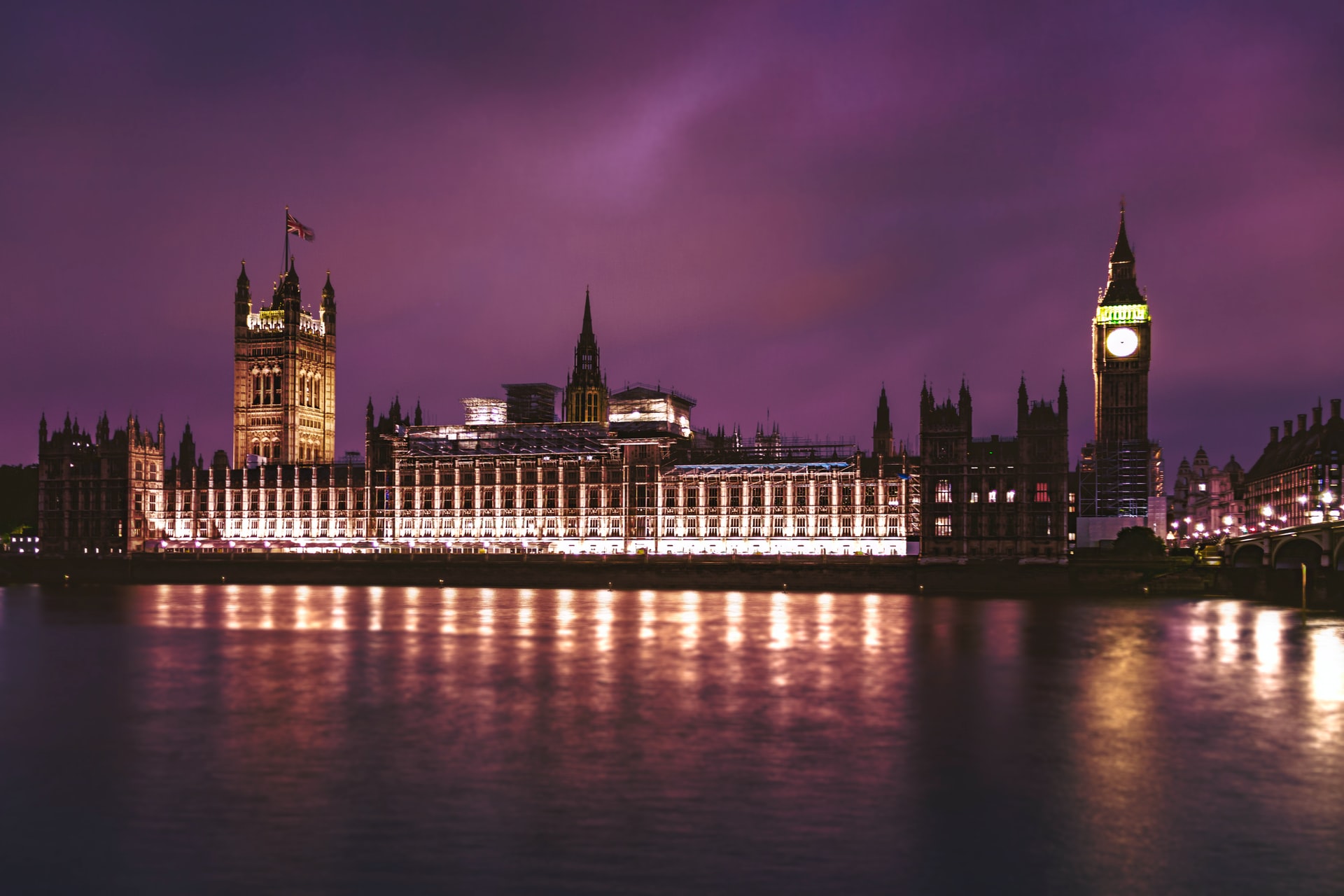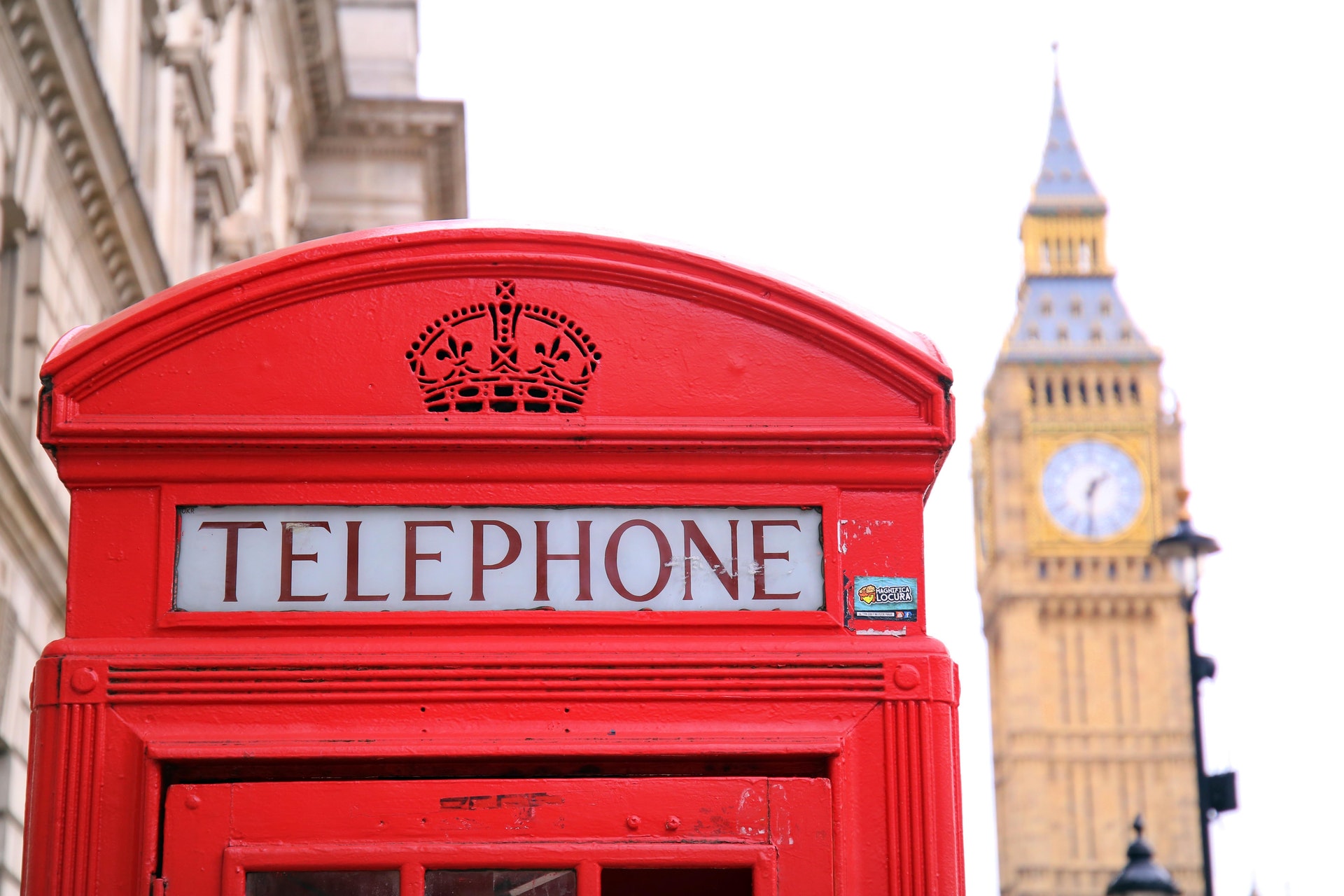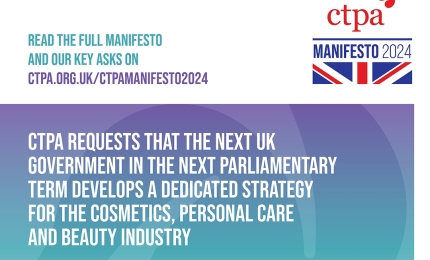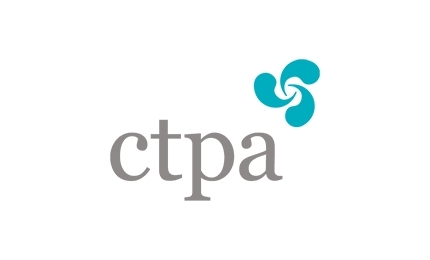Find us on...
The views expressed below are personal and do not necessarily reflect the views or policies of the CTPA
 What exactly happened to UK politics over the last crazy few months? Why was Liz Truss chosen and then why did she fail so spectacularly? What can we expect to see from Rishi Sunak and his administration? Will Labour win the next general election now that they are so far ahead in the polls? And what does this mean for the cosmetics and personal care sector?
What exactly happened to UK politics over the last crazy few months? Why was Liz Truss chosen and then why did she fail so spectacularly? What can we expect to see from Rishi Sunak and his administration? Will Labour win the next general election now that they are so far ahead in the polls? And what does this mean for the cosmetics and personal care sector?
These were some of the questions that we looked at in a lively online seminar for CTPA members in early November. The piece below looks at these questions and updates them in the light of the Autumn Statement given by the Chancellor Jeremy Hunt and more recent events.
What Has Just Happened in UK Politics?
It has been the most extraordinary few months in UK politics that I have ever seen and I started in public affairs in 1990 when Margaret Thatcher was still PM.
Three PMs in one year and four Chancellors of the Exchequer. A PM who lasted just 44 days and some of that was mourning the death of the Queen. A ‘mini-Budget’ that spooked the markets and was such a disaster that it had to be reversed almost entirely by a new Chancellor within 4 weeks. A Tory leadership election that lasted just 5 days to appoint Rishi Sunak as the fifth PM in 6 years. Whoa.
Why?
 A fundamental reason has been Brexit related in that the referendum in 2016 had a majority voting for Brexit but there was no precise definition of what kind of Brexit it was going to be and what the vision for the UK would be after Brexit. Was it going to be a very soft Brexit that involved staying close to the EU? Or was it going to be a sovereignty first Brexit that gave the UK maximum freedom? Would the UK go for relatively high tax, high regulatory standards and high public investment future? Or would we go for a low tax, low regulation, small state, personal freedoms post Brexit future?
A fundamental reason has been Brexit related in that the referendum in 2016 had a majority voting for Brexit but there was no precise definition of what kind of Brexit it was going to be and what the vision for the UK would be after Brexit. Was it going to be a very soft Brexit that involved staying close to the EU? Or was it going to be a sovereignty first Brexit that gave the UK maximum freedom? Would the UK go for relatively high tax, high regulatory standards and high public investment future? Or would we go for a low tax, low regulation, small state, personal freedoms post Brexit future?
This debate has divided the country and the Conservative Party since 2016 and it is one of the fundamental underlying reasons we have seen what we have seen in recent months.
Boris Johnson won the 2019 election on getting Brexit done plus showing that the Tories would invest heavily in hospitals, schools, the NHS, levelling up and that austerity would be ended. Johnson represented a sovereignty-first Brexit, but one that supported communities that wanted strong public services and investment in less well off areas.
When Johnson was forced to resign, the debate about what the future was to be began again. Liz Truss tapped into the deep frustration among some Tory MPs and party members that post Covid under Sunak as Chancellor taxes had been rising significantly and that the promised ‘bonfire of regulation’ that some had promised post Brexit had not happened. Truss believed passionately in a small state, low taxes, deregulation, individual freedoms and growth at all costs. For a range of reasons Sunak was always going to struggle in the members’ vote as he was implementing tax rises as Chancellor, his resignation was seen as the trigger for the downfall of Boris Johnson who is still popular in some sections of the party and the negative publicity Sunak had received about his spouse’s non-dom status during a cost of living crisis.
However, Sunak pointed out over the Summer in the leadership contest that cutting taxes would mean losing the confidence of the markets, higher interest rates and higher Government debt servicing costs – all of which turned out to be 100 per cent true. But of course this was largely disregarded at the time by Conservative Party members.
 Truss only just squeezed through the MP stage of the contest and then won in the members ballot pretty convincingly. But she then went on to be the shortest lived PM in UK political history. Her ‘mini-budget’ was lauded at the time by some right of centre Tory MPs, some think tanks and by some right of centre media who hailed it as exactly the sort of pro-growth policies that they had always wanted. But of course as we now know, it turned out to be an economic and political disaster that had to be reversed almost in entirety within a month and it cost her and her Chancellor their jobs. Some of Truss’ policies can work in more benign economic circumstances and if planned in advance extremely carefully in the right political and economic context. But the circumstances were truly awful with inflation high and rising, huge public debt from Covid, interest rates rising and a need for massive energy price bail out for the economy after Russia’s invasion of Ukraine.
Truss only just squeezed through the MP stage of the contest and then won in the members ballot pretty convincingly. But she then went on to be the shortest lived PM in UK political history. Her ‘mini-budget’ was lauded at the time by some right of centre Tory MPs, some think tanks and by some right of centre media who hailed it as exactly the sort of pro-growth policies that they had always wanted. But of course as we now know, it turned out to be an economic and political disaster that had to be reversed almost in entirety within a month and it cost her and her Chancellor their jobs. Some of Truss’ policies can work in more benign economic circumstances and if planned in advance extremely carefully in the right political and economic context. But the circumstances were truly awful with inflation high and rising, huge public debt from Covid, interest rates rising and a need for massive energy price bail out for the economy after Russia’s invasion of Ukraine.
In the end, the choice of Sunak as PM after an extraordinarily quick process has calmed the markets and calmed UK politics.
What Will a Sunak Administration Look Like?
Sunak is a confirmed and convinced Brexiteer. He is also a fiscal conservative – meaning that he believes in balancing the books and in sound money. He knows business having been in banking and finance throughout his previous career. He is pragmatic and he wants to restore the UK’s reputation in the world which he believes has taken a major knock in recent years.
As seen in the Autumn Statement, he wants to see:
- Confidence in the UK in the financial markets and he and Chancellor Hunt are willing to put up taxes and restrain public spending in order to achieve that
- The retention of a compassionate form of Conservatism as seen in the inflation rise for benefits and the retention of the triple lock for pensions
- Good public services as seen in the increases in spending for the next 2 years in health and education
- The use of Brexit freedoms – where they make sense not for their own sake – as seen in the reform to Solvency 2 that will allow more private sector investment in infrastructure
- More ‘grown up’ Government – as seen in the return of experienced Cabinet Ministers some of whom did not support him and more experienced advisers to Number Ten than was the case under Truss
Sunak does immerse himself in the detail and will study his briefings and interrogate them carefully. He is currently focused on four major issues: small boats crossing the Channel and ‘illegal’ immigration; the NHS; the economy; and strikes.
What Does this Mean for the Sector?
Here are some brief thoughts on what Sunak’s administration will likely mean for the sector in the next two years:
- EU retained law – aka Brexit Freedoms Bill – Sunak supports sensible deregulation implemented in a sensible timescale and is therefore not anything like as keen as Truss was on scrapping all EU retained law that isn’t actively kept in place by the end of 2023. Equally, the House of Lords will pass extensive amendments to the Bill as it passes through Parliament which if accepted in the end by Government would reduce the impact of the Bill. However, Sunak is unlikely as things stand today to drop the Bill as he wants to keep the Conservative Party Brexiteer MPs onside as much as he can and he may need to offer them some things like this Bill that they would like to see in return for them accepting some of the compromises that may be needed on the Northern Ireland Protocol (see below).
- Northern Ireland Protocol and EU relations – Sunak was Chancellor and he knows how important it is to avoid a trade war with the EU in a recession and cost of living crisis. He wants a deal done on the Northern Ireland Protocol by Easter 2023 which is the 25th anniversary of the Good Friday Agreement and he wants to sign it at a possible state visit at that time by US President Joe Biden. That is infinitely easier said than done however. He has paused the passage of the Northern Ireland Protocol Bill for the moment during the negotiations. He will keep the Bill alive but it is unlikely Sunak would ever fully implement it even if it was passed because the result would likely be a trade war with the EU. Sunak as a former Chancellor knows that a trade war with the EU during a recession and cost of living crisis would not be a good outcome for him, the party or the economy.
- UK Cosmetics Regulation – Sunak is far more likely than Truss to want to retain EU derived regulation where it is working and helps business and consumers. He is far less likely than Truss to want to remove regulation from a purely ideological standpoint. Retention of the UK Cosmetics Regulation should be easier to achieve under Sunak than Truss, but the industry must and will continue to push hard to ensure this is the result.
- UK REACH – Sunak has rejected any ‘Swiss style’ deals with the EU that rely on the UK aligning with whatever decisions the EU makes. Sunak is a pragmatist and is not as ideologically interested in deregulation for its own sake as Liz Truss was. Probably the most likely outcome therefore is that the UK does implement its own UK REACH system as currently proposed by DEFRA but that it is more risk based and proportionate than the original DEFRA proposal several years ago. The devil will be in the detail and the industry must and will work intensively with Government to seek to ensure that the burdens and the costs of the new system are proportionate.
- Sustainability and the environment – Sunak is struggling in this area. Recently, he reversed his initial view on not attending COP27 and did attend it. He was forced by his MPs to accept more onshore wind farms against his stated preference but he did allow the development of a new metallurgical coal mine in Cumbria which was roundly criticised by environmentalists. Sunak is personally not as passionately in favour of the UK playing a leading role on climate change, biodiversity and environmental protection as Boris Johnson was. But Sunak does support net zero. He is not going to continue what was deemed by NGOs as an ‘attack on nature’ by Truss and it appears as if his Government will continue where Johnson’s government left off on EPR, labelling and circular economy. It is reasonably likely that Sunak will be sensitive to the needs of business in a recession and cost of living crisis and so will listen carefully if business requests delays or changes to otherwise expensive changes at a difficult time. But at the time of writing, Government policy is continuing slowly in a similar direction as it did under Johnson.
Are Labour Going to Win the Next Election?
Right now, most Conservative MPs and even the Cabinet privately believe that Labour is extremely likely to form the next Government in 2024 or latest January 2025.
The Conservatives are 20 points behind Labour and face a recession, high inflation, rising interest rates, huge energy bills, public services in chaos because of Covid backlogs and a wave of damaging strikes across the public and some of the private sector.
There is a chance that Sunak can turn it around by Summer / Autumn 2024 and pull off an unexpected victory with a small majority and equally Starmer’s Labour might commit a range of unforced errors that undermine their chances.
But Conservative Ministers, MPs, advisers and commentators do not currently expect this. They feel that Labour is likely to win and possibly with an overall majority.
What would a Labour Government under Starmer mean?
- Compared with Corbyn, Sir Keir Starmer, his Shadow Chancellor Rachel Reeves and his Business Secretary Jonny Reynolds are all pro-business and people that can be worked with in a constructive way
- Labour’s policy development is still evolving and will only be finalised in the 6-12 months or so before an election
- Starmer and the party want to be - and be seen to be - pro-business and keen to listen
- There is a chance of a reset with relations with EU – and a softening of the edges of the Brexit deal – but no return to the EU or the Single Market or the Customs Union
- Labour wants to be fiscally responsible – but will be caught between financial markets requiring reduced debt and Labour supporters demanding vast extra spending. The mini-Budget makes that contradiction even more difficult. Higher business and personal taxation is likely in order for Labour to achieve any of its policy goals
- Labour is pro-business – but at the same time the party is far more keen on very high standards for labour, environmental and consumer protection than the current Government. This could lead to higher regulatory costs and burdens
- Labour wants to invest massively in a green and net zero future and wants the UK to lead the way in this area. They may not have the money they would like to finance all of this, but the direction of travel is clear
- On trade – Labour is much less keen on trade deals at any price – it would raise the bar for environmental protection, labour rights, animal welfare etc and will be nervous about any trade deals that could cost UK jobs
And What Does This Mean for the Sector?
It has been a bumpy ride. There will be more bumps on the way and a potential change of Government in 2024. The industry needs to be prepared and ready for both a small Conservative victory against the odds or a Labour Government.












